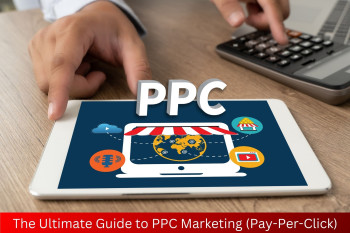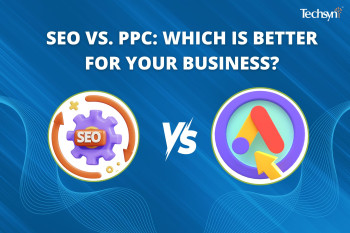Local SEO is becoming increasingly important in 2024 as it helps businesses reach more potential customers in their area. With 83% of customers using Google to find and evaluate local businesses, it's crucial to optimize your local SEO strategy to stay competitive. In this comprehensive guide, we'll explore the basics of local SEO, how Google determines local rankings, and provide actionable tips to help you improve your local search rankings. So, let's get started!
What is Local SEO?
Local SEO refers to the process of optimizing a website to improve its visibility in local search engine results. When users search for a product or service in a specific location, search engines like Google aim to provide them with the most relevant and accurate results. Local SEO helps businesses appear in these localized search results, making it easier for potential customers in their area to find them.
Why Does Local SEO Matter in 2024?
Local SEO has become increasingly important in 2024 due to the growing reliance on online searches and the rise of mobile usage. With the proliferation of smartphones, more and more people are using search engines to find local businesses while on the go. Whether it's finding a nearby restaurant, a local service provider, or a retail store, consumers are increasingly turning to search engines to discover businesses in their vicinity. As a result, businesses that invest in local SEO Services are able to capture the attention of these potential customers, gain a competitive edge, and boost their online visibility.
Local search is crucial for businesses, as evidenced by the following statistics:
👉 When people search for local businesses on their smartphones, 76% of them visit the business within 24 hours, and 28% of those searches lead to a purchase, according to Google.
👉 A survey on local SEO found that 82% of consumers read online reviews during a local search, spending nearly 14 minutes on average before making a decision.
👉 Google Maps is the go-to for 86% of people looking for a business's location.
👉 When shopping in-store, 74% of people who searched beforehand looked for hyperlocal information like the closest store, locations, or in-stock items.
👉 Over half of internet users worldwide use their mobile devices for local searches.
👉 When it comes to learning more about nearby businesses, 83% of searchers use Google Search, 55% use Google Maps, 44% use Apple Maps, 39% use Yahoo, and 31% use Bing.
Also Read: SMM Vs. SEO - What Should You Choose For Your Business?
How Google Determines Local Ranking?
Google determines local rankings based on various factors, including relevance, distance, and prominence. When a user searches for a local service or product, Google analyzes the relevance of the business's website content to the search query. It also considers the distance between the user's location and the business, aiming to provide results that are geographically close to the user. Additionally, Google considers the prominence of a business, which includes factors such as the number of online reviews, the overall rating, and the business's online reputation.
Also Read: Voice Search SEO in 2024
The three main categories of local ranking factors, according to Google, are:
👉 Relevance refers to how closely a Google Business Profile result is related to the words used by a searcher in their query.
👉 Distance refers to how far away Google thinks a user is from a business when they conduct the search.
👉 Prominence refers to how significant Google perceives a business to be to its potential customers.
Local SEO involves a combination of on-page and off-page optimization techniques to improve a website's local search visibility. On-page optimization includes optimizing the website's content, meta tags, headings, and URLs to include relevant local keywords. On the other hand, off-page optimization focuses on building high-quality backlinks, acquiring positive online reviews, and ensuring consistent NAP (Name, Address, Phone number) information across various online directories.
Local SEO Tips:-
Optimize your Google My Business listing: Creating and optimizing your Google My Business (GMB) listing is crucial for local SEO success. Make sure to provide accurate and up-to-date information about your business, including your address, phone number, business hours, and website URL. Add high-quality images and encourage customers to leave reviews.
Focus on local keywords: Incorporating local keywords throughout your website's content can significantly improve your local SEO. Identify relevant keywords that are specific to your location and integrate them naturally into your website's meta tags, headings, and content.
Build high-quality backlinks: A strong backlink profile can enhance your local SEO efforts. Focus on acquiring backlinks from authoritative local websites and directories. Reach out to local businesses or organizations for potential collaboration opportunities that can lead to backlink opportunities.
Encourage online reviews: Online reviews play a crucial role in local SEO. Encourage your customers to leave reviews on platforms like Google, Yelp, and Facebook. Respond to both positive and negative reviews in a timely and professional manner.
Optimize for mobile: With the increasing use of mobile devices, optimizing your website for mobile is essential. Ensure that your website is mobile-friendly, loads quickly, and provides a seamless user experience on smartphones and tablets.
Utilize local schema markup: Implementing local schema markup on your website can help search engines understand your business's location, contact information, and other relevant details. This can improve your chances of appearing in localized search results.
Leverage social media: Engaging with the local community on social media platforms can boost your local SEO efforts. Share relevant content, interact with followers, and encourage them to share your posts. This can increase your brand visibility and attract local customers.
Final Words
Optimizing your website for local search is essential for businesses to connect with their target audience in specific geographic locations. It improves online visibility, attracts more local customers, and provides a competitive edge in your industry. Using the tips in this guide, you can enhance your local search rankings, reach more potential customers, and boost your business's growth.










